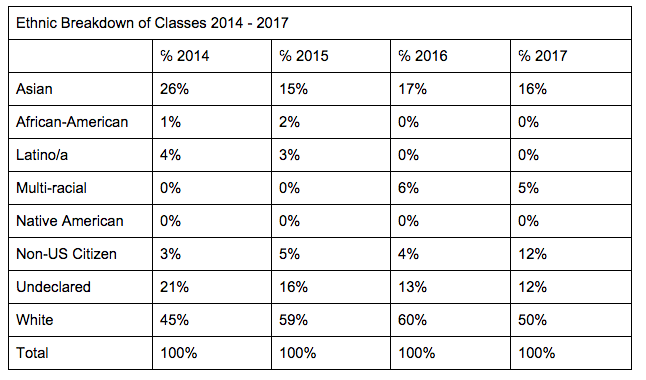The last few years have seen an enormous change in how sexual misconduct is perceived and addressed at colleges and universities across the country, and Olin is no exception. Our college’s culture has drastically shifted from “it can’t happen here” to “shit, it does”. Kate Maschan ’15 created and published the results of a survey showing that in the sample (482 responses, drawing from the student body in 2013-2014 and alums), rates of sexual misconduct at Olin were easily on par with those of many colleges in the US (around 1 in 5 cisgender women and 1 in 20 cisgender men reported being sexually assaulted during their time at Olin). This led to the creation of the Peer Advocates for Sexual Respect and the first rumblings of discussion about consent culture at Olin.
High-profile cases nationwide pointed toward intimidating reporting processes and poor accountability in punishing these crimes on the part of colleges. This led to an enormous, government-driven legal scaffolding of handling reports of sexual misconduct on campus. This falls legally under Title IX (check out knowyourIX.org), a law geared toward ensuring no student is denied an equal opportunity for education because of sex-based discrimination. Title IX and the Campus SaVE Act now give colleges both guidelines and requirements for interacting with reporters of sexual misconduct and investigating their cases.
In light of the national stage in which this conversation is unfolding, we have to turn attention to Olin. The Sexual Respect Team (SRT) comprised of representatives from several on-campus organizations have been working to research Title IX, the Campus SaVE Act, Olin College policies, and more. We, as this small group, hope with this knowledge to engage all of us, as the Olin community, to reflect and through actionable conversation improve upon the support the college provides. The team is Austin Greene ‘17 (R2), Ellie Funkhouser ‘17 (CORe), Gabrielle Ewall ‘17 (Peer Advocate), Jessica Diller ‘16 (Peer Advocate), and Victoria Preston ‘16 (Honor Board); our community is every student, faculty, staff, and administration member.
Given the huge expanse of topics to discuss yielded by research, we need to determine what questions we want to ask as a community. In a particular example, we could examine how Olin treats reporters – what are their rights, when are they informed of these, and what pressures act on them? Are they pushed to report to StAR but not the police or Babo? Are they ever pushed to not report at all? What timelines are they given, and what support? What procedures need to be set in stone, or should all be at the discretion of StAR?
The dynamics around keeping our campus safe can be thorny, complicated, and intimidating in such a tight bubble. This stuff can be tough to engage in (especially considering the layers of law and precedent that coat it all) and a lot is still up in the air.
Olin is still figuring this stuff out, and we are in a position to shape our future policies and campus culture..
The SRT will be hosting a huge campus-wide brainstorming session in November around Olin’s policies, particularly to determine that they align with what students (and faculty and staff) feel is crucial and fair. Look forward also to several October events: bystander training with BARCC, a Title IX and Campus SaVE overview with MIT’s Title IX coordinator, and Honor Board hearing panel pool training.
As ever, if you have any questions, comments, concerns, anything – the R2s and PAs are happy to listen and provide information or advice as desired, the HB is always happy to answer questions about fairness and policy, and CORe wants to represent your interests to the administration.
